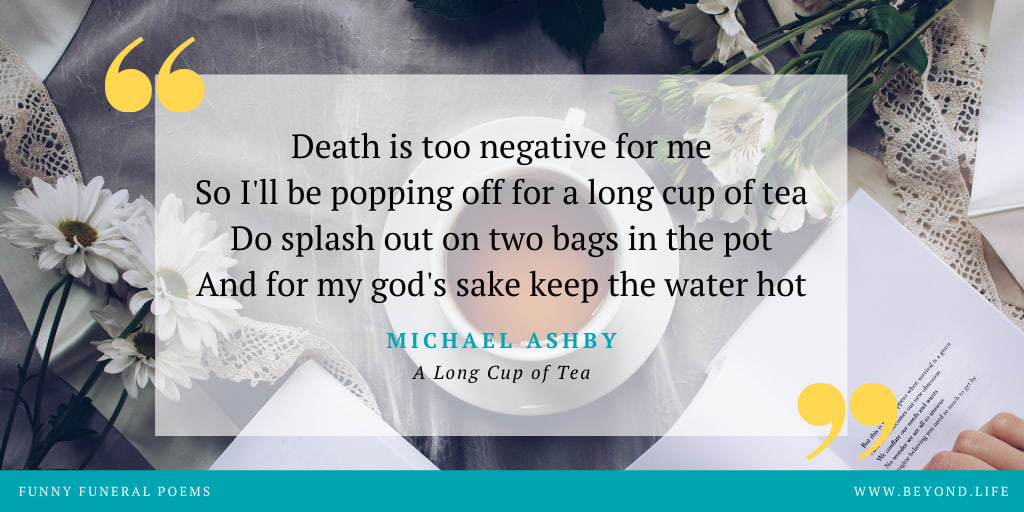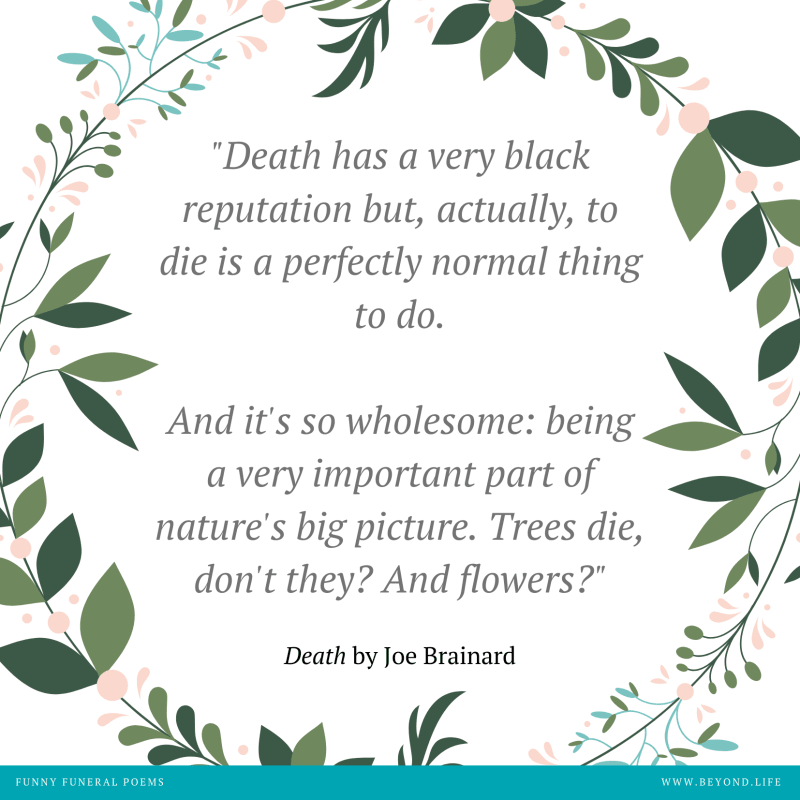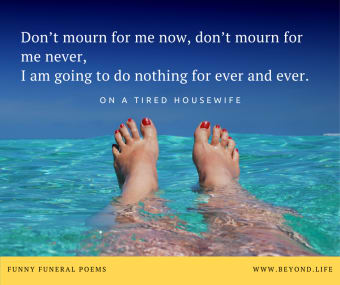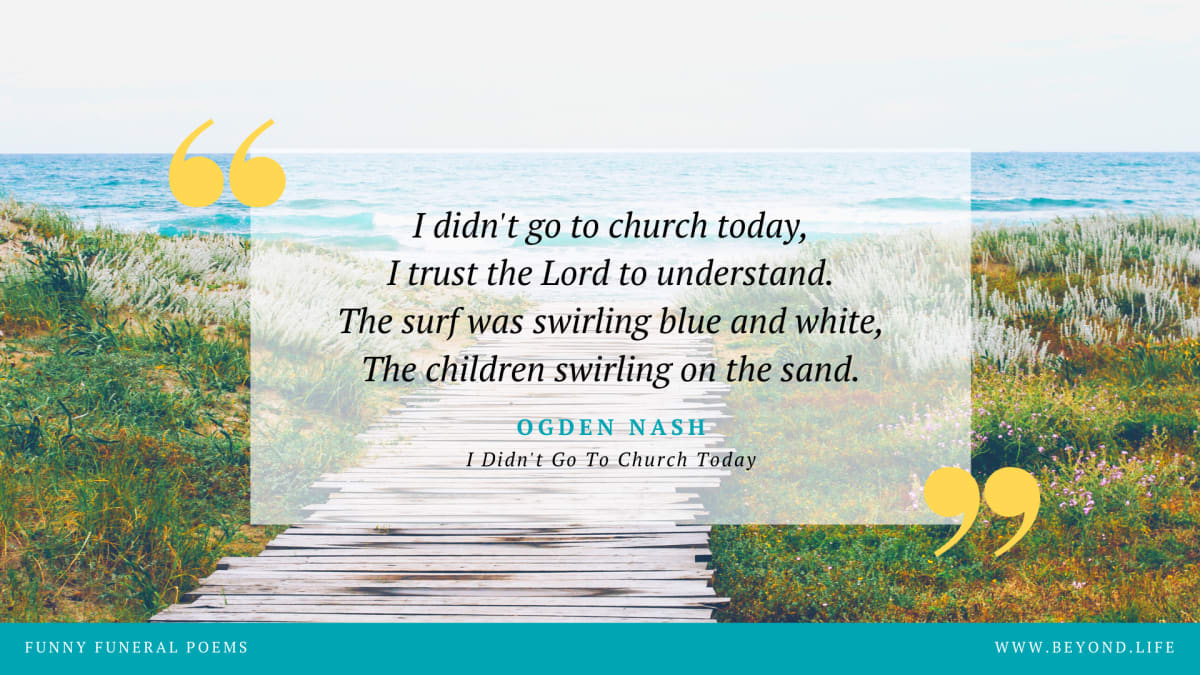
Giving a funeral speech can be a nerve-wracking experience. Public speaking isn’t everyone’s forte — and there’s always the question of what you should (and shouldn’t) say.
So, what makes a great speech at a funeral? We spoke to four experienced celebrants — people who write and deliver eulogies professionally — to get their top tips on writing a funeral speech that feels right.
How to write a funeral speech, according to real celebrants
We spoke to Clive, Melanie, Kate and Adrienne for their tips on writing a brilliant funeral speech.
-
 Work out the length
Work out the length
“A five-minute speech would typically be 600 to 650 words,” says Clive Pashley, from Premier Celebrants. Most people talk at a rate of about 125 words a minute, he explains. But the more nervous you are, the faster you’ll speak.
If you get to choose how long your speech will be, ask for only as much time as you can manage. “Remember: you’re grieving, and the longer you’re up there, the harder it gets,” says Melanie Sopp, celebrant and interfaith minister. “Even two minutes can feel like an eternity.”
-
Choose a topic
“Start by sorting out what the theme is,” says Adrienne Hodgson-Hoy, a celebrant from East Yorkshire. “What do you actually want to get people to understand, what is the whole basis of the speech?”
- Eulogies are where you tell the life story of the person who has died, from beginning to end.
- Tributes are typically shorter — 5-minute speeches on a treasured memory, anecdote, or theme from the person’s life.
“When you’re talking about somebody’s life, you talk about their passions: follow what they loved and what their strengths were,” says Kate Mitchell, who leads ceremonies in the South East. Eulogies follow a certain pattern (from birth to death), so it’s simply a case of pulling out those key moments that really reveal something.
For tributes, Melanie recommends writing about “things that mean something to you — whether it’s a personal memory, an anecdote, gratitude, or acknowledging somebody’s courage in the face of a long illness.” Family gatherings, holidays and first meetings are all good starting points for a funeral speech.
“The most important thing is to tell the truth as you see it,”
-
Follow your instincts
Not sure what to say in a funeral speech? Go with your gut.
“Just sit down and write what’s in your head, even if it’s a jumbled mess,” says Melanie. “Then go back through it to revise it and pick out what needs to be said on the day.”
Clive adds: “Don’t second guess yourself. If you think of a memory and it feels right, it’s important to you and it’s something that you shared — and if you think your friend or loved one would like you to share it — then I would go ahead and include it.”
-
Be even-handed
“Make sure your speech is as unbiased as possible,” says Adrienne. “Gather information from different parts of the family, so you actually get an accurate picture of what happened and what [the person who has died] was like.”
To get the information you need for your funeral speech, you may have to put your own opinions to one side. “Don’t be argumentative when you are taking the information, and don’t put your viewpoint first,” Adrienne stresses.
Clive agrees. “Some people use their time at the microphone to try and settle a score or get one up on someone. That’s obviously a real no-no,” he says, adding that such funeral speeches can be “excruciatingly embarrassing.”
-
Be honest — even about the difficult bits
Talking about someone with a complicated or difficult history? All our celebrants agreed on one thing: not to flinch away from talking about it.
 “The most important thing is to tell the truth as you see it,” says Kate. “To honour the person who has died, you need to talk about who they are, and not what people might want to hear about.”
“The most important thing is to tell the truth as you see it,” says Kate. “To honour the person who has died, you need to talk about who they are, and not what people might want to hear about.”
“That doesn’t mean a litany of things that they did wrong — and it doesn’t have to be the gory details. It’s about telling the truth but being kind.”
“Acknowledge that they did have issues,” says Adrienne. “I lead a funeral service once for someone who was an alcoholic, and the family said that yes, he had issues with alcohol, and he tried to turn away from it, but unfortunately the issue was too big a problem for him to overcome. There are tactful ways of saying these things.”
Honesty can be cathartic. Melanie gave a difficult eulogy for her father and says that the experience was “Liberating. It was an honest account of that relationship. I don’t regret it.”
-
Remember, it’s not all about you
 If you’re writing a funeral speech after losing a friend or family member, you’re understandably going to be in a lot of emotional pain. But while you should feel open to expressing how you feel, it’s important not to make the speech all about you.
If you’re writing a funeral speech after losing a friend or family member, you’re understandably going to be in a lot of emotional pain. But while you should feel open to expressing how you feel, it’s important not to make the speech all about you.
“Just be careful not to make it too centred on yourself, and make sure it really does focus on the person who’s passed away,” says Clive.
When talking about others, specific names also are important, he stresses. “Try to avoid saying ‘we’ or ‘they’ unless it’s obvious who you’re referring to. Otherwise, it can be a little ambiguous and hard to follow.”
-
Don’t be flowery, be specific
A lot of people feel that since a funeral is a serious occasion, funeral speeches should use serious, impressive language. Not so, say our celebrants.
“If their name was David, but they were known as Dave, call them Dave! Keep it personal,” says Adrienne.
“Don’t try and be clever and write flowery phases! Everybody thinks that they need to, but someone isn’t suddenly different because they died,” Kate explains. “If you can be specific, and base your speech on real things that happened, that’s best.”
“The songs you used to listen to together, the ways he used to stir his tea — those are the sorts of details that are specific to that person, and that’s what makes a great eulogy.”
For more inspiration…
For more ideas on things to say in a funeral speech, you can’t go wrong with our article on funeral speech examples. It’s filled with touching and sometimes even funny eulogies from real people.
Feeling nervous about an upcoming funeral speech? We followed up with Melanie, Clive, Adrienne and Kate to find out how to overcome your jitters. Check out their tips and tricks here.
Meet the celebrants
Clive Pashley started Premier Celebrants with his friend, James Greely, in 2016. They were later joined by Rachel Nussey. He and his team offer professional and bespoke funeral service planning across the Midlands.
Rev. Melanie Sopp is a celebrant and interfaith minister, working across the Midlands and the South coast. Melanie runs the excellent Celebrant Academy, which trains celebrants to create ceremonies and lead services of all kinds.
Adrienne Hodgson-Hoy was inspired to become a celebrant after losing her husband. Now, she leads unique, personal funeral services across Hull and East Yorkshire. With a friend, Adrienne runs Memories of Me, a service that allows people to plan their own funeral services.
Kate Mitchell is a creative independent celebrant working in the South East: her stomping grounds include Kent, Surrey and Sussex. As well as funerals, Kate leads thoughtful wedding and baby-naming ceremonies.



 We all have things we wish we could tell people who are no longer with us. Why not just give it a try? You could wait until you have a quiet moment alone to say what you want to say aloud. Or visit their grave or scattering place to speak to them.
We all have things we wish we could tell people who are no longer with us. Why not just give it a try? You could wait until you have a quiet moment alone to say what you want to say aloud. Or visit their grave or scattering place to speak to them. This could be something as simple as wearing their jewellery or watch every day. Or clothing: a favourite shirt could be worn, turned into a cushion, or framed to make art. Believe it or not, there is also a company that turns the clothing of people who have died into teddy bears.
This could be something as simple as wearing their jewellery or watch every day. Or clothing: a favourite shirt could be worn, turned into a cushion, or framed to make art. Believe it or not, there is also a company that turns the clothing of people who have died into teddy bears. 
 When you’re struggling with something – anything – writing can be very therapeutic. So, writing a letter to a loved one who has died can be a lovely way to feel connected to them and work through your grief.
When you’re struggling with something – anything – writing can be very therapeutic. So, writing a letter to a loved one who has died can be a lovely way to feel connected to them and work through your grief.  Your loved one’s grave, or the place where their ashes were scattered, can feel very meaningful. There’s comfort to be had in just giving yourself some time to sit with them there.
Your loved one’s grave, or the place where their ashes were scattered, can feel very meaningful. There’s comfort to be had in just giving yourself some time to sit with them there. 
 Pardon Me For Not Getting Up
Pardon Me For Not Getting Up

 Death
Death


 Death
Death
